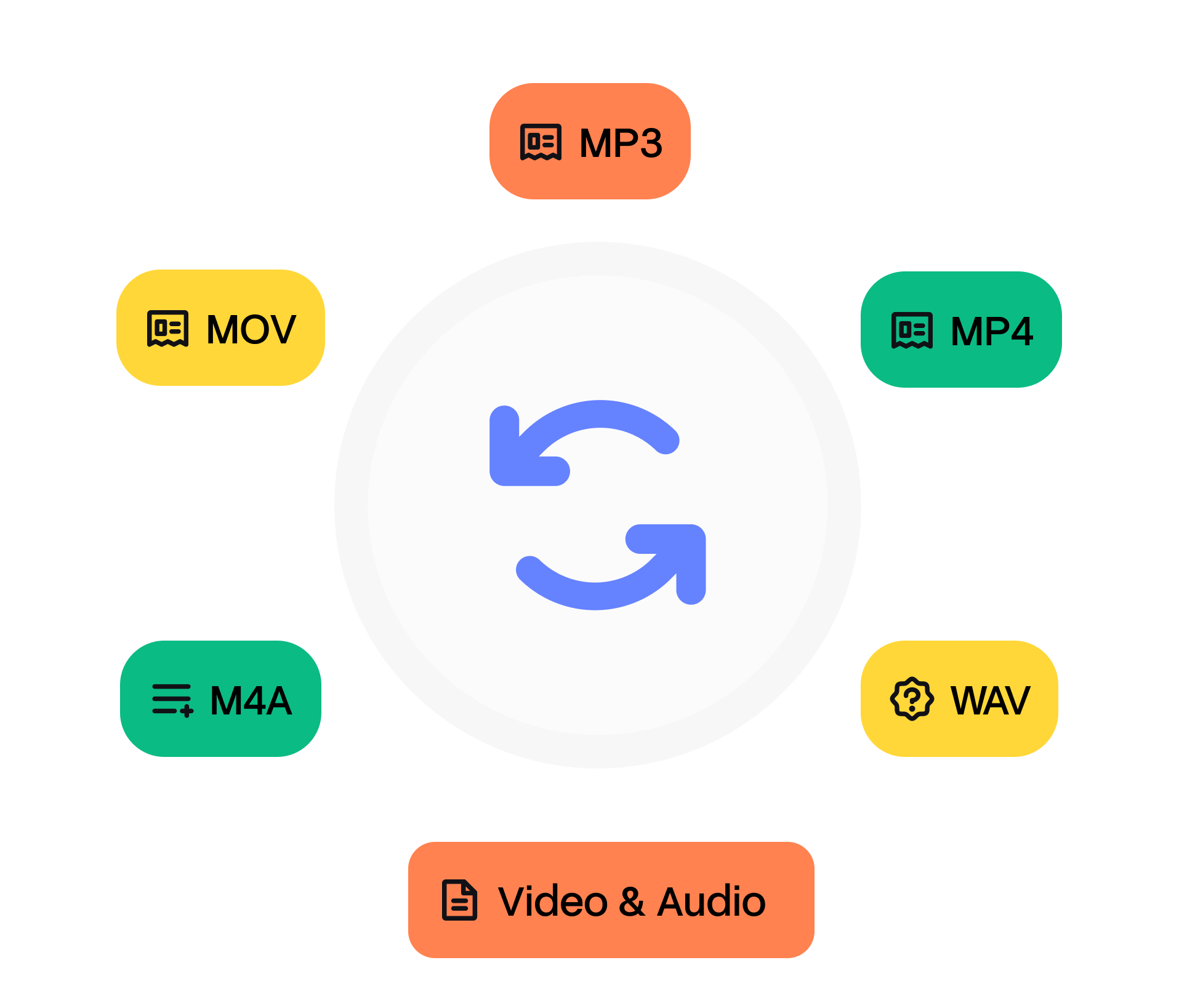1. Upload your MKV file
Start by dragging and dropping your MKV file into the upload area, or click to browse your device and select your file in the list.
Convert your MKV (.mkv) file to FLAC (.flac) in seconds straight from your browser. No installs. No watermarks. 100 % free.
Convert from MKV to FLAC but also 47+ other formats.
No signups, no fees, no hidden restrictions. Convert MKV to FLAC directly in your browser for free.
We take your security seriously. All file transfers use 256-bit SSL encryption.
No installs needed; convert MKV to FLAC right from your browser, on any device, anytime.
Start by dragging and dropping your MKV file into the upload area, or click to browse your device and select your file in the list.
Next, pick FLAC as the format you’d like to convert your video into. Alternatively, we support +47 formats that you can choose from. When you’re ready, hit the Convert button.
Once the conversion is complete, you’ll get a download link right away. Just click to save the file to your device. It’s fast, easy, and doesn’t require any software installation.

Matroska Video (MKV) is a flexible open container that can accommodate virtually any codec, multiple subtitle tracks, and chapter points. It is built on EBML (Extensible Binary Meta Language), a binary cousin of XML, allowing unlimited, self‑describing elements. The project began in 2002 after developer Steve Lhomme forked the failed MCF container. With the explosion of H.264 ‘fansubs’, MKV became the default wrapper for anime communities, bundling soft‑subs and styled karaoke effects. In 2013 Matroska was standardised within the IETF as the basis for WebM, cementing its longevity.
Free Lossless Audio Codec (FLAC) compresses PCM audio by 30‑60 % without discarding information, making it ideal for archiving CDs and hi‑res mixes. It uses linear prediction and Rice coding and wraps metadata like cuesheets and artwork in a flexible block structure. Developer Josh Coalson released FLAC 1.0 under the open‑source BSD licence in 2001 as an answer to proprietary formats like Monkey’s Audio. Within a decade, hardware vendors Cowon, FiiO, Logitech Squeezebox added native decoding. In 2015, Apple began supporting FLAC in iOS 11’s Files app, cementing its place as the de‑facto lossless standard.
Need to convert your audio file from MKV to FLAC? It’s simple. Just upload your file, choose the output format, and click ‘Convert’. That’s it — no downloads, no complicated software, and no hidden costs. Our tool is designed to be fast, secure, and completely free, so you can turn your files into the format you need in seconds.
Whether you’re converting audio for sharing, editing, or playback on different devices, our converter ensures high-quality output every time. After your conversion, you’ll also have the option to transcribe audio to text, making it easy to turn your FLAC files into accurate, editable text in just a few clicks.
VLC, MPV, and Kodi handle MKV flawlessly on every OS. Editing suites such as DaVinci Resolve import common codecs like H.264 or ProRes within MKV, but for delivery you may still export MP4. MKVToolNix lets you split, merge, and tag tracks without re‑encoding.
VLC, foobar2000, Winamp, and the Linux desktop decode FLAC out of the box. In the studio, Reaper and Ableton Live import FLAC while preserving metadata. If you need playback on constrained devices, transcode to ALAC or high‑bit‑rate MP3 with no audible penalty in casual listening.
Other tools